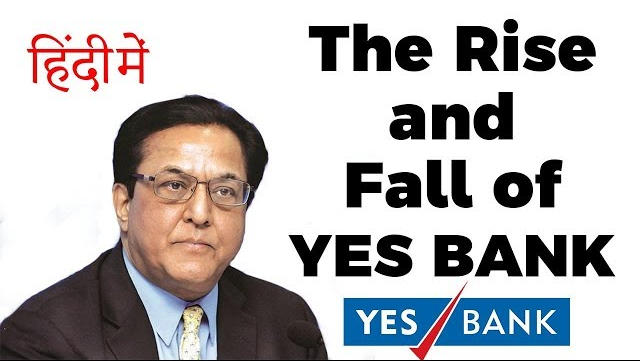Table of Contents
Pious and sanctimonious
- MEA: “The temptation of sensationalist social media hashtags and comments, especially when resorted to by celebrities and others, is neither accurate nor responsible”
- MEA advised these celebrities to ascertain facts and properly understand the issues at hand “before rushing to comment on such matters”.
- Is GoI seeing everything as a conspiracy against itself?
- Many Indian celebrities, professed their desire to keep the country together and voiced their disapproval of ‘propaganda’.
- Some issues that have a bearing on human rights, survival of democracy and international relations do tend to invite comment
Military modernisation | Tribune
- India has been maintaining a high level of military preparedness
- State-of-the-art weaponry in fortifying the country’s borders
- 4% hike in in the overall defence budget for 2021-22
- Capital outlay for military modernisation: Rs 22,000 crore (nearly 19%)

- In next 7-8 years, GoI is going to spend $130 billion (more than Rs 9 lakh crore) on defence modernisation
- We are among the world’s biggest arms importers
- ‘Make in India’ initiative

- Rs 48,000-crore deal to procure 83 Tejas light combat aircraft from state-run aerospace major Hindustan Aeronautics Ltd
- For large-scale indigenisation,
- Overhaul and reorientation of the defence PSUs
- Active involvement of the private sector
- Technocrats
- Top institutes of science and technology
- An unbudgeted amount of Rs 20,776 crore was spent to buy military hardware amid the border standoff with China.
- Transfer of technology by foreign players can not only help in making India self-reliant on the defence front but also boost the nation’s potential to cater to the global market through cutting-edge research and innovation.
Fake degree bazaar | Tribune
- The detection of 36,000 fake degrees issued to people across 17 states is termed the tip of the iceberg by the investigators.
- Only 14 of the 55 hard disks seized from Solan’s Manav Bharti University have been scanned so far by a special investigation team.
- Even more alarming is the revelation that the university may have been indulging in the blatant illegal activity for over a decade.
- But what is more disturbing is the persistent demand for fake degrees.
- What does this say about our higher education system, or us as a society?
- The tentacles are spread nationwide; periodical crackdowns have helped, but clearly fall short.
A year on, mind the gaps

- January 30, 2021 marked one year since India detected its first case of COVID-19 — a student in Kerala who had returned from Wuhan, China.
- Analysing the country’s response to the novel coronavirus pandemic so far reveals a mixed bag of successes and failures along with a host of unknowns looming ahead, that urgently need to be addressed to both limit damage due to the pandemic and get back to the path of economic and social recovery.
- Till date the country has recorded 1,07,90,183 cases and 1,54,703 deaths due to COVID-19 — the second largest in the world in terms of cases, after the United States, and fourth in terms of deaths.
- For example, India’s case fatality ratio on February 3 stood at 1.4% compared to 2.8% in the United Kingdom or 3.1% in South Africa, while India’s deaths per million is 112, compared to 1,362 in the United States, 1,486 in Italy, or 1,831 in Belgium.
- While India’s case fatalities ratio was lower than Bangladesh (1.5%) and Pakistan (2.1%) it was but significantly higher than Bhutan (0.1%), Nepal (0.7%), the Maldives (0.3%) and Sri Lanka (0.5%).
- Deaths due to COVID-19 per million population in Bangladesh was 50, Pakistan was 54 and Sri Lanka was just 16, lower than in India.
- India’s initial response was marked by political commitment at the highest level.
- The fear of new more virulent strains
- India was also among the few countries to announce a stringent nationwide lockdown much before it had a significant number of cases.
- An unintended offshoot of the lockdown was the large-scale exodus of migrants and families forced to walk hundreds of kilometres back to their homes in the countryside.
- No public health response can be successful without ownership at the state level.
- In all epidemic responses, generation and use of strategic information plays a crucial role.
- While the Indian Council of Medical Research (ICMR) carried out selective sero-surveillance studies in metropolitan areas, these surveys were limited in coverage and periodicity. It is therefore still a matter of guesswork as to what percentage of India’s population have been infected with the virus — an indicator of herd immunity.
- The response was also marked by a lack of involvement of civil society organisations as partners with state agencies.
- Vaccination drive is on.
- How long the vaccine will protect us?
- The pandemic period has exacerbated existing social inequalities and the poor face a ‘lost decade’ ahead, a challenge which needs to be addressed on priority.
NEWS
- Both houses of Parliament to resume discussion on Motion of Thanks on President’s Address
- Delhi Police files FIR against people who created India maligning toolkit, shared by Greta Thunberg on Twitter
- RBI to announce its bi-monthly monetary policy today
- Asia’s biggest show Aero India to conclude in Bengaluru today
- UN Security Council calls for release of Aung San Suu Kyi and others in Myanmar
- Railways Minister Piyush Goyal says, General Budget 2021 is historic and focuses on infrastructure projects in Railways
- Centre allocates about Rs 7,000 crore in rail budget 2021-22 for Odisha
- PM Modi pays homage to Pt Bhimsen Joshi on his birth anniversary
- External Affairs Ministry says, India is closely monitoring developments in Myanmar
Download Free PDF – Daily Hindu Editorial Analysis






















 WhatsApp
WhatsApp